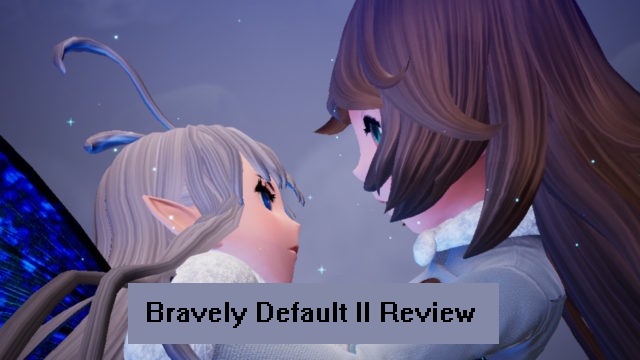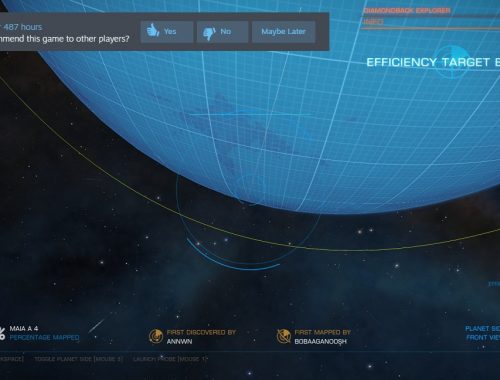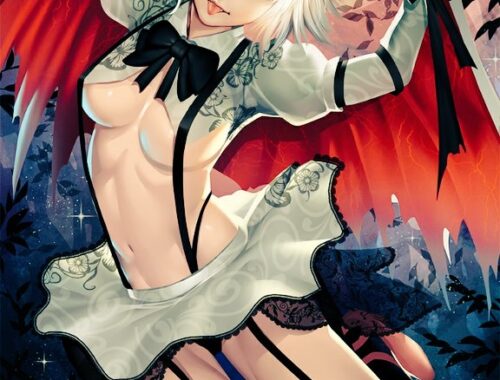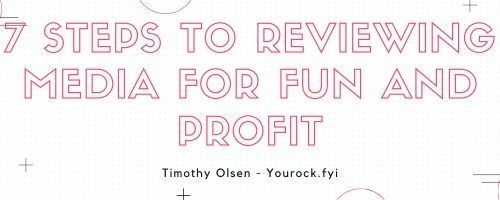
Review – Bravely Default II
It took over 80 hours, but I’ve unlocked all the endings and beaten all of the “optional” class trials of the Switch game Bravely Default II (which is coming to Steam later this year.) I’ll be honest, I wish I’d quit playing at the forty hour mark. I’m not going to say this is a bad game and people shouldn’t play it, but I am going to point out that it’s an excessive disappointment and the more time a player spends on it the longer that player is going to realize how flawed it is.
The Premise: Bravely Default 2 follows the antics of Seth, who is a guy in a fantasy world, doing fantasy world stuff. He literally has no personality. I have made oatmeal for myself that was less bland than this character, and I am really notorious for buying cheap oatmeal and not seasoning it.
Seth gets gets swept up in a plot by Princess Chick who needs to Seal the Crystals to Stop Teh Evil. Her deal is that she comes from a Kingdom that Has Fallen and Fifty Years Ago her Dad Did The Same Thing And Died. It’s been done before, but at least she has a trait. These two are joined by Elvis, a magician who likes to drink and is loyal to friends even if he’s a bit self centered. He has a Magical Book that reveals things to him when he comes across magical rocks. There’s also Adell, who grew up sheltered and is now travelling to explore the world – the nature of where she grew up and who she actually is isn’t foreshadowed so much as just thrown on the player in Chapter Four in what is commonly called “An Asspull.” Together, these four characters do stuff, because that’s what characters do. They meet side characters that have much more personality than them and are much more worthy of screen time, such as:
Sir Sloan (not to be confused with the author I like), who was one of the Heroes of Light 50 years ago and is travelling with Gloria (Princess Chick) to hope she doesn’t face the same fate as her dad,
Castor, the Prince who Totally Won’t Betray you,
Loli Beastgirl Who Has a Name but Fuck If I Can Remember It, who doesn’t really want to kill the party but she’ll do whatever it takes to protect her family,
Roddy and Lilly, two parents who are manipulated in different ways by an enemy who makes them believe their dead daughter is still alive, doing whatever they can do ensure they don’t lose their daughter again,
Galahad, who will stop at nothing to protect what he cares for… and must atone for the damage he does when doing so causes harm to the very lives he swore to protect,
and others!

Why it Works: Bravely Default II preys upon the nostalgia of Japanese role playing games of the past and merges it with the strategy of borrowing or saving turns (“Braving” or “Defaulting” respectively) for an experience that isn’t necessarily fresh but feels nice and comfortable, like a warm blanket on a rainy day. It is genetically engineered to hit all the right notes, not unlike a hit pop song. All the tropes a player might know and love will be found here. There’s palette swapped monsters to slay, bosses with patterns to memorize and exploit, and classes to level up and learn. This is a high production budget, by-the-numbers game of its genre. Given that, it’s hard to be entirely disappointed.
Why it Doesn’t Work: Bravely Default II is kind of like the Chinese knockoff of the franchise (which consists of two other main entrees and a couple of mobile games). It can’t stand well on its own merits, and it is definitively worse than the franchise’s predecessors in so many others.
To begin with, as mentioned earlier, the main characters are at best milquetoast and at worst totally forgettable. They exist to move the story forward more than to actually be a part of it. Some of the best writing is presented not in cutscenes from the main story but in bantar from the “Party Chat” conversations that pop up from time to time, interrupting the flow of the game. Almost none of the best writing happens to the main characters proper.
This is an issue on two levels. The first is that, as a standalone game, I want to be invested in the characters I’m spending time with. The second is that each of these characters is a few stages removed from archtypes of the characters from the previous games… and those characters were much more interesting. The main male leader of Bravely Default and Bravely Second was a bit of a ham at times, but he actually had a personality.
As the story progresses, a lot of familiar beats are hit in a way that aren’t fresh yet aren’t offensive. The gameplay, however, starts to take a weird nosedive after the third act. You see, in Bravely Default, you have multiple classes you can switch to, and its important to mix and match abilities for ultimate victory. The balance is really odd, with a lot of underwhelming options coupled with a couple of absolutely broken ones. The result is a lot of fights that feel like HP sponges that the player will want to burn as fast as possible with their most overpowered abilities, yet won’t be able to because of this game’s unique countering system.

The fights are rarely challenging. They are, sometimes, COMPLETE FUCKING BULLSHIT. Often times the flow of combat was less “what skills will help me overcome” and more “I sure hope I don’t get wrecked by unlucky criticals and unusual counter conditions.” I can count on one hand the number of times I felt like I was actually being challenged to use my knowledge of the class system to find a unique way to beat a threat, because that number is 3 and all of them are in the final act of the game. Most of the time, there was a story boss where I wasn’t rewarded for being clever so much as being punished for not using the one or two combinations the game wanted me to use. A lot of the game can be summed up as “make sure I’m capturing monsters for Beast Master so I can cap all my stats to 999, the max they will go” and “Did you know Thief has an ability called Godspeed Strike and it’s completely broken? We should spam it on this opponent.” And then the game will be like “OK, but if you’re gonna do that, better not be with daggers or swords or guns or your mom’s beef stroganoff recipe, because this boss has resistance to all four of those things and then some and will not only take half damage from them but get an extra turn later.”
The classes are a bit of a mixed bag, and in many ways a step back from what other games in the franchise offered. My least favorite class is probably Gambler. They can help make money in the early to mid game, and they can also spend that money to do damage and that damage isn’t inconsequential. However, their special job ability is that sometimes, the character with the job will see an increase of their gains with a multiple of 15, randomly applied to EXP, JP, or cash… when they get anything at all. Most of the time, as part of the payoff, they are given no experience or JP whatsoever. Who was creating this game and thought “You know what would be fun, is if we punished characters for leveling this class?” There is also a final job unlocked called Bravebearer, which has some seemingly interesting abilities but every last one of them is underwhelming at the point you get them. I will say that I appreciated how the Thief class was actually useful, and how the different healing classes are all viable in vastly different ways as opposed to one being more overpowering or relevent than the others.
Previous games have had a mechanic where the player needs to replay the game to get a good or “canon” ending. Bravely Default II handles this in a way that cut down on repetition, which is great… but at the cost of being completely unsatisfying from a narration perspective. Nothing like being walked into a bad ending and then after the credits rolling discovering it was all, for intents and purposes, just a dream.
Do you like fairies? Bravely Default II continues the tradition of the franchise of having the small winged race be puppet master antagonists, but this time with the twist that they may also help you, because of reasons I won’t spoil here. It’s weird, to me, how the first game handled this (and the reveal to this) so much better.
Do you like quests? This game has a lot of them, and at some point I just stopped pursuing them because most of them are god awful. As a throwback style RPG I don’t expect a lot of difference from “collect 4 radishes for my fancy dish” but this game’s poor implementation of them, their lack of an experience point reward, poor rewards in general, and how very few of them actually contribute to the world building as a whol had me asking “Why bother?” The characters do have a self-reflecting “Party Chat” late into the game where they discuss how much time they’ve spent helping random people they’ve encountered, and it made me realize I was seeing the quests less as fun content and more as a guilty burden. Every quest has a ranking from 1 star (so easy I’m not sure why the NPC isn’t doing it) to 10 stars (more difficult than the final boss because reasons.) They aren’t given or revealed in a reasonable fashion though, so it isn’t impossible to be stuck with a few quests that can’t be dealt with until a number of hours (and levels gained) after they’ve been picked up.
There is a mini-game of sorts where players who put their game in sleep mode have a chance at getting super rare items by being on a boat. It is remarkably uninteresting, and while I used it a lot in hopes of getting free JP orbs, I never truly understood the point of it. Bravely Second’s “Rebuilt the Moon Kingdom” minigame was a lot more interactive and enjoyable. This sailing was not at all interactive, and a bit of a disappointment. The game does have a very forceful way of tying it in to the “True Ending” but at that point why should I care?
There is also a card game called “B N’ D.” It’s fucking garbage. I hate it. I didn’t bother with it after unlocking the class that is tied to it. I imagine most people who play the card game just save scum until they get the results they want? Stupid card game. Apparently, players who collect every card in this God-Forsaken game get an accessory that boosts money and job points, two things that aren’t exactly in short supply in the game as is.
Overall, Bravely Default II is the epitome of a 3 star game. There is enjoyment to be had there, with solid production value and a cohesive experience… but that enjoyment is marred by so much minutia and the shadows of the games before it. In some ways, it feels like this game tried to appeal to more potential players by playing its story and gameplay safe, and made it too bland and unseasoned as a result. It didn’t help that I personally spent way too much time trying to find something at this buffet that I would like, feeling full yet unsatisfied as a result.
Once the world of Bravely Default II is saved from the Ultimate Evil, there isn’t much replayability. There is a New Game Plus mode, but I doubt a lot of people will be trying to play the game with set classes or challenge runs or anything. Once the game is beat, outside of mopping up missed content, that’s it. The roller coaster ride is over; get off. And I mean, that’s most games, but this particular role playing game’s end feels so abrupt, especially considering how long the slow climb to the drop took.




